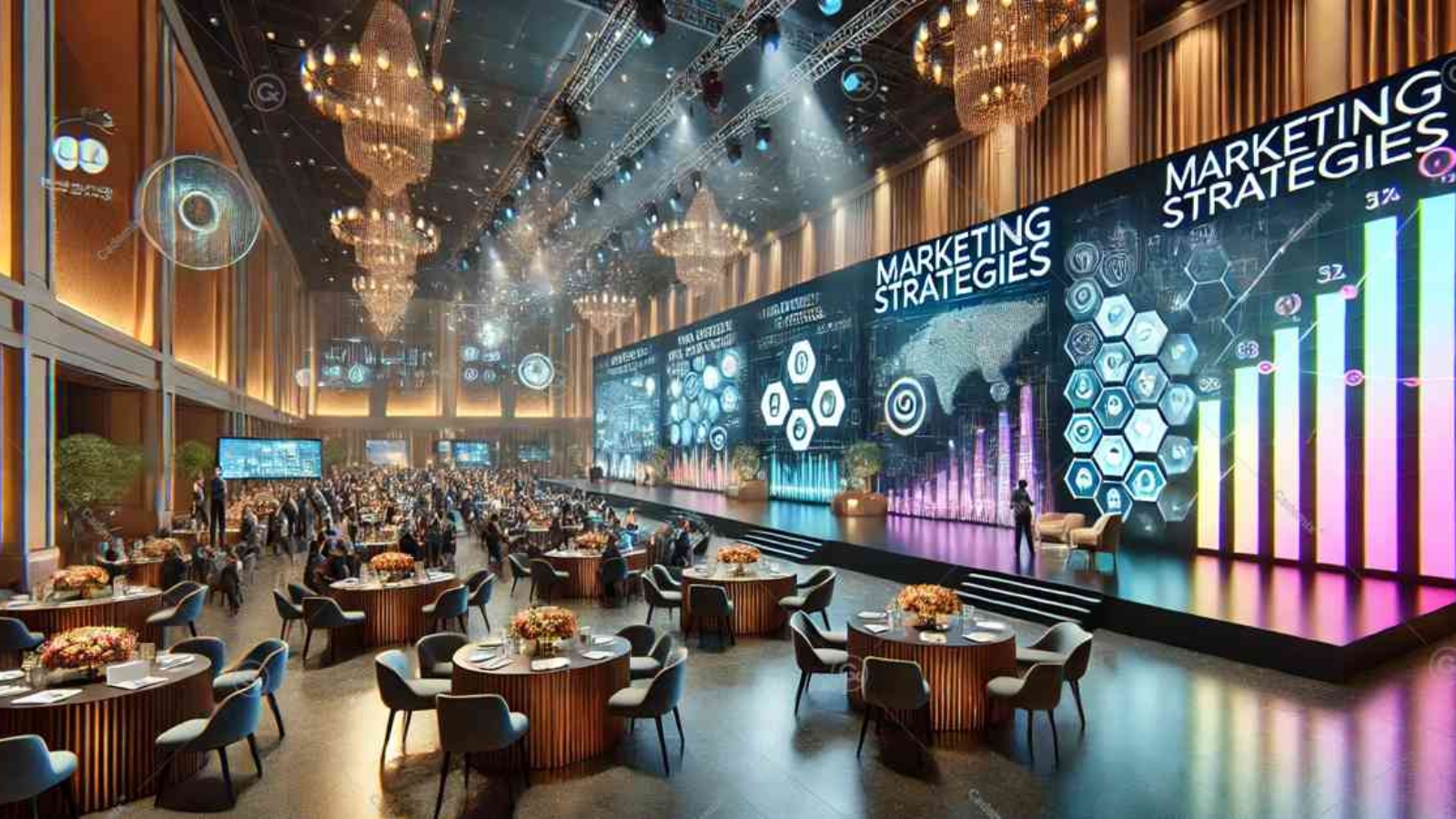Estimated Reading Time: 15 minutes Discover how FreeCAD revolutionizes architectural design by offering a cost-effective, open-source solut
Role of Augmented Reality in the Future of Design
Estimated Reading Time: 11 minutes The Role of Augmented Reality in the Future of Design is pivotal, reshaping creative processes and setting new industry standards. This exploration reveals AR’s profound impact on collaboration, innovation, and user engagement in design. Through case studies and expert insights, discover how AR drives design evolution and unlocks limitless possibilities for the future.
Navigating International Event Management: Challenges and Solutions
In today’s interconnected world, International Event Management presents unique challenges that require specialized strategies for success. This article explores the critical aspects of managing events across different countries and cultures, focusing on overcoming obstacles related to Cultural Differences, Legal Compliance, Logistics Planning, and Budget Management. By leveraging local expertise, adopting cutting-edge Event Technology Tools, and prioritizing Sustainability, event planners can navigate these complexities effectively. The discussion also highlights emerging Event Trends in 2024, the rise of Hybrid Events, and the importance of thorough Post-Event Evaluation to ensure continued success in the global arena.
By Samareh Ghaem Maghami, Associate Consultant and Project at Cademix Institute of Technology

Introduction
In the rapidly evolving landscape of global business, Event Management has emerged as a crucial discipline that transcends borders, bringing together diverse audiences from around the world. International Event Management plays a vital role in orchestrating successful events that resonate across cultures, languages, and time zones. However, managing events on a global scale introduces a myriad of challenges, from navigating Cultural Differences and adhering to various Legal and Regulatory Compliance standards to overcoming logistical hurdles and maintaining effective Budget Management.
As the industry trends shift towards more complex formats like Hybrid Events and the demand for Sustainability grows, event planners must stay ahead of the curve by adopting innovative strategies and leveraging the latest Event Technology Tools. This article delves into the intricacies of International Event Management, offering insights into the unique challenges faced by event professionals and providing practical solutions to ensure seamless execution. From the impact of Event Trends 2024 to the importance of Effective Communication and Stakeholder Management, we explore how to successfully navigate the complexities of global event planning and create memorable experiences that leave a lasting impact.
Unique Challenges in International Event Management
International Event Management presents a distinct set of challenges that require careful planning and a deep understanding of various factors that can impact the success of an event. One of the most significant challenges is navigating Cultural Differences. Each country has its own customs, traditions, and social norms, which can influence every aspect of Event Planning, from the choice of venue to the style of communication used with attendees. Understanding and respecting these cultural nuances is crucial to creating an event that resonates with a diverse audience and avoids potential misunderstandings.
Another critical challenge is ensuring Legal and Regulatory Compliance. When managing events across borders, event planners must familiarize themselves with local laws and regulations, which can vary significantly from one country to another. This includes everything from securing the necessary permits and licenses to adhering to specific health and safety standards. Vendor Negotiation also becomes more complex, as dealing with international suppliers requires knowledge of local business practices and the ability to navigate different legal environments.
Logistics Planning is another area where international events can become particularly challenging. Coordinating transportation, shipping, and on-site logistics across multiple countries requires meticulous planning and the ability to adapt to unexpected changes. The rise of Hybrid Events adds another layer of complexity, as event planners must manage both in-person and virtual components, often across different time zones. Leveraging Event Technology Tools is essential to facilitate real-time communication and coordination, ensuring that all aspects of the event run smoothly.
Budget Management in international event planning is also more complicated due to fluctuating currency exchange rates and varying costs in different regions. Event planners must be strategic in their budgeting to account for these variables while still delivering a high-quality experience. Additionally, the growing emphasis on Sustainability in events means that planners must also consider the environmental impact of their decisions, from reducing carbon footprints to sourcing sustainable materials.
By understanding and addressing these unique challenges, event professionals can better navigate the complexities of International Event Management and deliver successful events that are both impactful and culturally sensitive.
Solutions and Strategies for Successful International Event Management
To overcome the challenges inherent in International Event Management, event planners must adopt a strategic approach that combines thorough research, effective collaboration, and innovative use of technology. By implementing these strategies, event professionals can ensure that their global events are not only successful but also culturally relevant and logistically seamless.
Research and Cultural Awareness form the foundation of any successful international event. Before diving into the Event Planning process, it is essential to conduct in-depth research into the cultural norms, preferences, and expectations of the target audience. Understanding the local customs and traditions allows event planners to tailor the event experience to resonate with attendees, fostering a deeper connection and enhancing the overall impact of the event. Engaging in Stakeholder Management by involving local experts and community leaders can provide invaluable insights that help avoid cultural missteps.
Collaboration with local professionals is another key strategy in navigating the complexities of International Event Management. Partnering with local Event Planning experts who have a deep understanding of the region’s logistical and regulatory landscape can significantly streamline the planning process. These local partners can assist with Vendor Negotiation, securing necessary permits, and managing on-the-ground logistics, ensuring that the event adheres to all legal requirements and runs smoothly. Moreover, working with regional providers of Event Technology Tools can help integrate the latest innovations, from virtual event platforms to real-time translation services, making the event more accessible and engaging for a global audience.
Effective Communication and Leadership are crucial in coordinating international events, where teams may be spread across different countries and time zones. Developing a clear and consistent communication strategy that leverages both digital and traditional channels can help maintain alignment among all stakeholders. Leadership in Event Planning is particularly important in international contexts, where strong leadership can unify diverse teams and ensure that everyone is working towards a common goal. Regular virtual meetings, detailed project timelines, and centralized communication platforms are essential tools for keeping all parties informed and engaged throughout the planning process.
Leveraging Technology in Events is indispensable for managing the complexities of global events. The use of advanced Event Technology Tools can facilitate everything from real-time collaboration and logistics management to audience engagement and post-event analysis. For example, implementing Experiential Marketing strategies through interactive digital platforms can create immersive experiences that captivate both in-person and virtual attendees. Additionally, technology can play a significant role in promoting Sustainability by enabling virtual participation, reducing the need for travel, and minimizing the event’s carbon footprint.
Finally, Post-Event Evaluation is a critical step in the Event Management process, particularly for international events. Gathering feedback from attendees, stakeholders, and team members allows event planners to assess the success of the event and identify areas for improvement. This evaluation process should include an analysis of the event’s cultural impact, logistical efficiency, and financial performance, as well as its adherence to Sustainability goals. The insights gained from Post-Event Evaluation can inform future events, helping planners refine their strategies and continuously improve their approach to International Event Management.
By embracing these solutions and strategies, event professionals can navigate the complexities of international event planning with confidence, delivering impactful events that resonate on a global scale.

Case Studies and Examples
Exploring real-world examples of International Event Management offers valuable insights into how challenges are addressed and how innovative strategies are implemented to achieve success. These case studies highlight the practical application of key Event Management principles, providing a roadmap for event planners aiming to navigate the complexities of global events.
Successful International Events demonstrate how careful planning, cultural sensitivity, and effective use of technology can lead to extraordinary outcomes. For instance, consider a large-scale conference held in multiple countries simultaneously, utilizing Hybrid Events technology to connect audiences across continents. The event planners faced the challenge of coordinating different time zones, languages, and cultural expectations. By employing Event Technology Tools such as live translation services, real-time polling, and virtual networking platforms, they created a seamless experience for both in-person and online attendees. This approach not only enhanced audience engagement but also ensured that the event was accessible to a global audience, thereby maximizing its reach and impact.
Another example can be seen in a global product launch that incorporated Experiential Marketing techniques to create a memorable and immersive experience for attendees in different locations. The event planners focused on Sustainability by choosing eco-friendly venues, minimizing waste, and promoting virtual attendance to reduce the carbon footprint. Logistics Planning was meticulously managed, with careful coordination of shipping, customs, and local vendor partnerships. The use of Event Technology Tools allowed for real-time interaction between different locations, ensuring a cohesive and unified event experience despite the geographical distances.
Lessons Learned from these case studies emphasize the importance of adaptability and proactive problem-solving in International Event Management. For example, one event faced unexpected challenges due to last-minute changes in local regulations. The event team quickly adapted by leveraging their Stakeholder Management skills, collaborating with local authorities, and adjusting the event schedule to comply with the new requirements. This flexibility not only saved the event from potential cancellation but also reinforced the importance of having contingency plans in place for international events.
Another key lesson is the critical role of Leadership in Event Planning when managing global events. Strong leadership ensures that all team members, regardless of their location, are aligned with the event’s goals and are equipped to handle challenges as they arise. Effective communication, combined with a clear vision, enables leaders to guide their teams through the complexities of international event planning, ensuring that the event’s objectives are met.
These case studies underscore the significance of Post-Event Evaluation in refining strategies for future international events. By analyzing feedback and performance metrics, event planners can identify what worked well and where improvements are needed. This continuous learning process is essential for staying ahead of the curve in the ever-evolving field of Event Management.
In conclusion, these examples illustrate that while International Event Management presents unique challenges, it also offers unparalleled opportunities for creativity, innovation, and global impact. By applying the lessons learned from these case studies, event planners can develop strategies that not only overcome obstacles but also elevate their events to new heights of success.

Future Trends in International Event Management
As the world continues to evolve, so too does the field of International Event Management. Staying ahead of emerging trends is crucial for event planners looking to create impactful and relevant experiences on a global scale. This section explores the Event Trends 2024 that are set to shape the future of international events, with a focus on technological advancements, evolving audience expectations, and the growing importance of Sustainability.
One of the most significant Event Trends in 2024 is the rise of Hybrid Events. As the world becomes increasingly connected, the demand for events that blend in-person and virtual experiences is skyrocketing. Hybrid Events offer the flexibility to engage audiences both locally and globally, breaking down geographical barriers and allowing for greater inclusivity. This trend is not only a response to the challenges posed by the global pandemic but also a reflection of changing audience preferences. Attendees now expect the convenience of virtual participation coupled with the immersive experience of live events. To capitalize on this trend, event planners must invest in cutting-edge Event Technology Tools that facilitate seamless integration of virtual and physical components, ensuring a cohesive experience for all participants.
Another trend shaping the future of International Event Management is the increasing focus on Sustainability. As global awareness of environmental issues grows, event planners are under pressure to design events that minimize their ecological footprint. This includes everything from reducing waste and energy consumption to sourcing sustainable materials and promoting eco-friendly transportation options. The shift towards Sustainability is not just a trend but a necessity, as both attendees and stakeholders demand more responsible and ethical event practices. Incorporating Sustainability into event planning not only helps protect the planet but also enhances the reputation of the event and the organizations involved, attracting a more conscious and engaged audience.
The use of emerging Event Technology Tools is also transforming the way international events are planned and executed. From AI-powered event management platforms to augmented reality (AR) experiences, technology is enabling event planners to create more personalized and engaging experiences. For example, AI can be used to analyze attendee data and preferences, allowing for more targeted marketing and customized event experiences. Meanwhile, AR and virtual reality (VR) can bring a new level of interactivity and immersion to events, whether through virtual site tours, interactive product demonstrations, or gamified experiences. Staying at the forefront of technological innovation is essential for event planners who want to deliver cutting-edge experiences that resonate with modern audiences.
In addition to technology and sustainability, another key trend is the growing emphasis on Experiential Marketing. Today’s audiences are looking for more than just information; they want to be part of an experience that is engaging, memorable, and shareable. Experiential Marketing involves creating immersive environments that allow attendees to interact with brands and products in meaningful ways. This can be particularly powerful in International Event Management, where creating a culturally relevant and emotionally resonant experience can help bridge the gap between diverse audiences. By incorporating Experiential Marketing into event planning, organizers can create deeper connections with their audience, leading to increased brand loyalty and advocacy.
Finally, the importance of Post-Event Evaluation cannot be overstated in the context of these emerging trends. As the event landscape continues to evolve, collecting and analyzing feedback from international events becomes even more critical. Post-event evaluation provides valuable insights into what worked and what didn’t, allowing event planners to continuously refine their strategies and stay ahead of the competition. This process should include a thorough analysis of attendee satisfaction, engagement levels, and the effectiveness of Event Technology Tools and Sustainability initiatives.
In conclusion, the future of International Event Management is being shaped by a combination of technological innovation, sustainability, and a focus on creating immersive, experiential events. By staying attuned to these Event Trends 2024 and continuously adapting to the changing landscape, event planners can ensure that their global events remain relevant, impactful, and successful in an increasingly interconnected world.
Conclusion
In the dynamic and ever-changing field of International Event Management, the ability to navigate complex challenges while seizing emerging opportunities is key to delivering successful and impactful global events. As event planners face the unique demands of managing events across diverse cultures, legal environments, and logistical frameworks, they must be equipped with strategic solutions that address these complexities head-on.
Understanding and respecting Cultural Differences is fundamental to creating events that resonate on a global scale. By conducting thorough research and fostering Stakeholder Management, event planners can ensure that their events are culturally sensitive and relevant to their target audiences. Legal and regulatory compliance, along with effective Vendor Negotiation, are also critical components that require close attention to detail and a deep understanding of local laws and practices.
The rise of Hybrid Events and the growing importance of Sustainability are reshaping the future of Event Management. Leveraging the latest Event Technology Tools enables planners to bridge the gap between in-person and virtual experiences, creating inclusive and immersive events that reach a broader audience. At the same time, adopting sustainable practices not only reduces the environmental impact of events but also aligns with the values of an increasingly eco-conscious audience.
Strong Leadership in Event Planning and Effective Communication are essential for coordinating international teams and ensuring that all aspects of the event are executed flawlessly. By embracing technology and innovation, event planners can stay ahead of industry trends and deliver cutting-edge experiences that captivate and engage attendees.
Finally, the importance of Post-Event Evaluation cannot be overlooked. Gathering feedback and analyzing the success of international events provides valuable insights that can inform future strategies and lead to continuous improvement. This ongoing process of learning and adaptation is crucial for staying competitive in the global event management landscape.
As the industry continues to evolve, those who excel in International Event Management will be the ones who can effectively navigate its challenges, embrace its opportunities, and consistently deliver memorable and impactful events. By applying the strategies and solutions outlined in this article, event professionals can ensure that their events not only meet but exceed the expectations of a global audience, driving success in the world of international event planning.

Elevate Your International Event Management
As the global landscape of Event Management continues to evolve, the demand for innovative and culturally aware event planning has never been higher. Whether you’re an experienced event planner or just beginning your journey in International Event Management, the strategies and insights shared in this article are designed to equip you with the tools needed to navigate the complexities of global events successfully.
To stay ahead of the curve and ensure your events stand out on the international stage, it’s crucial to continuously update your knowledge and skills. Invest in learning about the latest Event Technology Tools and how they can enhance your Event Planning efforts, from facilitating Hybrid Events to integrating Experiential Marketing techniques that resonate with diverse audiences. Additionally, prioritize Sustainability in your event planning to meet the growing expectations of both attendees and stakeholders for environmentally responsible events.
Engage with local experts and leverage their insights to overcome the challenges posed by Cultural Differences and Legal Compliance in different regions. By building strong partnerships and honing your Stakeholder Management skills, you can ensure that your events are not only successful but also culturally sensitive and legally sound.
Don’t forget the importance of Post-Event Evaluation—use this opportunity to gather feedback and refine your strategies for future events. The continuous improvement of your processes is key to maintaining a competitive edge in the rapidly changing world of International Event Management.
Ready to take your global events to the next level? Start by applying the solutions and strategies discussed in this article to your next event. Stay informed about Event Trends 2024 and beyond, and make a commitment to integrating the latest innovations and best practices into your event planning process.
Elevate your approach to International Event Management today—your success on the global stage begins with the decisions you make now. Whether you’re planning a small conference or a large-scale international summit, these strategies will help you navigate challenges and create unforgettable experiences that leave a lasting impact on your audience.

About the Author
Samareh Ghaem Maghami is a seasoned event management professional with a diverse background in interior decoration and event planning, currently pursuing a master’s degree at Wiener Neustadt. With extensive experience in managing international events and a keen interest in the intersection of culture, technology, and sustainability, Samareh brings a unique perspective to the challenges and opportunities in global event management. As a member of the Cademix Institute of Technology, she is committed to advancing her knowledge and expertise in this dynamic field.
For more insights, be sure to read her article on “Innovative Strategies for Sustainable Event Planning,” published in the Cademix Magazine, where she delves into the latest trends and technologies driving the future of sustainable events. For collaboration inquiries or to learn more about her work, feel free to contact Samareh directly. Your journey to mastering international event management begins here explore her other articles and stay informed on the latest industry trends.
Please feel free to contact her at:
E-mail: sam.gh.maghami@gmail.com
E-mail: samareh.ghaem-maghami@cademix.org
LinkedIn: https://www.linkedin.com/in/samareh-ghaem-maghami
Xing: https://www.xing.com/profile/Samareh_GhaemMaghami
Introduction to Computer-Aided Design: Exploring the Basics with TinkerCAD and FreeCAD
Estimated Reading Time: 20 minutes Explore the transformative potential of Computer-Aided Design (CAD) with our insights on TinkerCAD and FreeCAD, tools that are revolutionizing digital design. Start your project today and unlock a world of creativity and innovation with CAD.
Powerful Methods for Multi-Device Success With UX Design
Estimated Reading Time: 8 minutes Explore cutting-edge strategies to enhance user experience (UX Design) across multiple devices, ensuring seamless integration and superior …
Leveraging Technology in Modern Event Management
Estimated Reading Time: 25 minutes In the evolving landscape of modern event management, leveraging cutting-edge technology—from event management software to virtual platforms and social media integration—has become essential for creating seamless, engaging, and sustainable experiences. Technology in Modern Event Management is the main keyword to reach this article.
Innovation in Architecture Offices: Enhancing Creativity Through Technology and Environment
Estimated Reading Time: 14 minutes Explore how architecture offices can harness cutting-edge technologies like GIMP and 3D modeling, alongside innovative interior design, to cultivate a creative environment that drives design innovation and modernizes the architectural workspace.
Great Interior Designers Strategies Using Cross-Functional Team Collaboration
Estimated Reading Time: 17 minutes Explore innovative project management strategies for interior designers, emphasizing the transformative power of cross-functional team collaboration to elevate both the creative and operational facets of interior design projects.
Innovative Marketing Strategies for Event Managers
Estimated Reading Time: 13 minutes Innovative marketing strategies are essential for event managers to seamlessly integrate cutting-edge technology, creativity, and sustainability into their event planning, ensuring maximum engagement and success in today’s competitive landscape.
The Role of Creativity in Event Planning: Think Outside the Box
Creativity plays a pivotal role in event management, serving as the key to designing impactful and memorable experiences that resonate with attendees. This article explores how innovative thinking in event planning can elevate events, ensuring they stand out in a competitive landscape. By leveraging the latest event technology tools, integrating experiential marketing strategies, and staying ahead of event trends for 2024, planners can push boundaries and create unique, engaging events. Additionally, we provide practical tips for balancing creativity with budget management, effective communication, and post-event evaluation to ensure success in every aspect of event management.
By Samareh Ghaem Maghami, Associate Consultant and Project at Cademix Institute of Technology
Introduction
In the dynamic world of event management, creativity is not just a desirable trait—it’s a necessity. As the industry evolves, standing out in a crowded market requires more than just logistical precision; it demands innovative thinking that captures the imagination and leaves a lasting impression on attendees. Event planning today goes beyond mere organization; it’s about crafting experiences that resonate, inspire, and push the boundaries of what’s possible. Whether you’re orchestrating a corporate conference, a grand wedding, or an international expo, incorporating creativity into your event strategy can be the difference between an ordinary gathering and an extraordinary experience.
In this article, we delve into the critical role that creativity plays in event management, offering actionable insights on how to generate innovative ideas that not only meet but exceed expectations. From leveraging cutting-edge event technology tools to embracing experiential marketing and staying ahead of event trends, we will explore how to infuse creativity into every aspect of your event planning process.
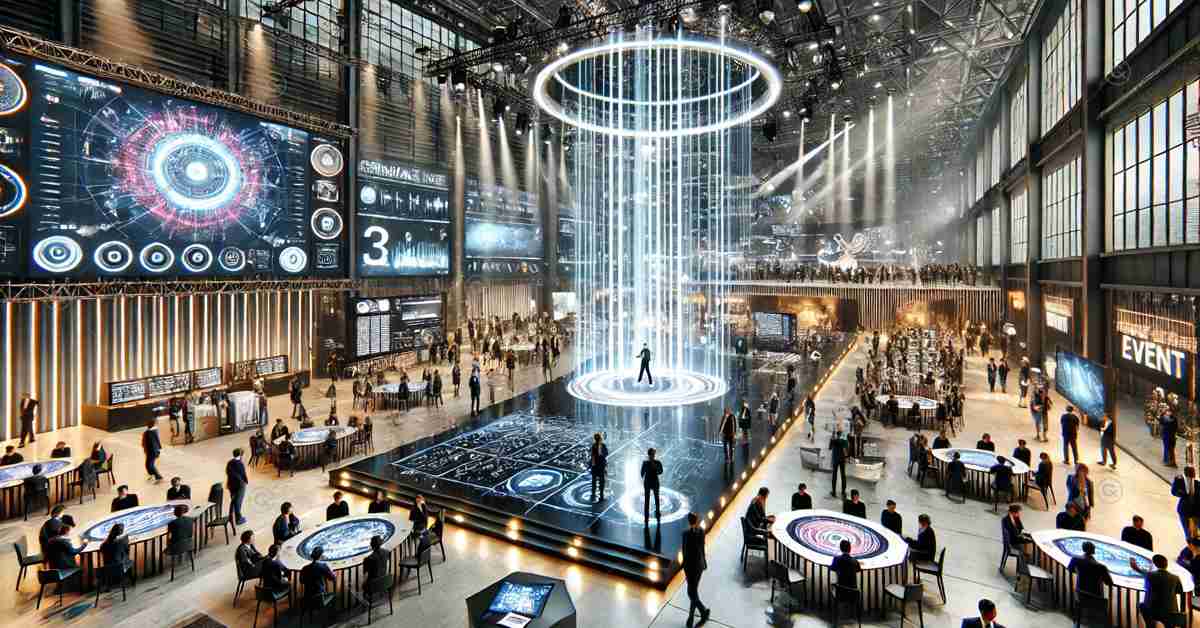
The Importance of Creativity in Event Planning
In the competitive landscape of event management, creativity is the cornerstone that can set your event apart from the rest. But what does creativity in event planning truly mean? At its core, it’s about approaching each event with a fresh perspective, using innovative ideas to craft unique and engaging experiences that captivate your audience. In a world where attendees are constantly bombarded with content and experiences, the ability to think outside the box is what makes an event memorable.
Creativity impacts every facet of an event—from the design and atmosphere to the way attendees interact with the content. A creatively planned event not only meets logistical goals but also delivers an emotional and intellectual experience that resonates with participants long after the event concludes. By integrating creative elements into event marketing strategies, you can significantly enhance engagement, ensuring your event not only attracts but also retains the attention of your target audience.
Moreover, staying ahead of event trends in 2024 requires a creative mindset. The event industry is rapidly evolving, with new technologies and trends emerging constantly. Planners who can anticipate and incorporate these trends creatively will be better positioned to deliver cutting-edge events that stand out in the marketplace. Whether through the use of innovative event technology tools or by embracing experiential marketing tactics, creativity ensures that your event remains relevant, dynamic, and impactful.
In essence, creativity is not just a component of successful event management—it’s the driving force behind it. By fostering a culture of creativity, you can transform ordinary events into extraordinary experiences, leaving a lasting impression on your attendees and setting a new standard for the industry.
Strategies to Foster Creativity in Event Planning
To excel in event management, it’s essential to cultivate creativity at every stage of the planning process. Implementing effective strategies to spark innovative ideas can lead to more engaging and memorable events. Here are some proven methods to enhance creativity in event planning:
1. Brainstorming Techniques
Creativity often begins with effective brainstorming. Techniques like mind mapping, brainwriting, and collaborative workshops can help your team generate a wide range of ideas. Encouraging an open and non-judgmental environment allows for the free flow of thoughts, leading to unique concepts that might not emerge in more structured settings. This approach is particularly useful in project management and logistics planning, where new and creative solutions can significantly enhance the event’s overall impact.
2. Leveraging Event Technology Tools
Incorporating the latest event technology tools can be a game-changer in fostering creativity. Tools such as virtual reality (VR), augmented reality (AR), and AI-driven personalization can transform traditional event formats into immersive experiences. These technologies enable event planners to create interactive environments that captivate attendees and offer new ways to engage with the event content. Staying up-to-date with event trends 2024 ensures you’re utilizing the most cutting-edge tools available, keeping your events innovative and ahead of the curve.
3. Incorporating Experiential Marketing
Experiential marketing is a powerful strategy that allows attendees to interact with a brand or message in a meaningful way. By incorporating creative, experience-driven elements into your events, you can forge a deeper connection with your audience. Whether through hands-on activities, live demonstrations, or immersive storytelling, experiential marketing transforms passive attendees into active participants, making the event more memorable and impactful.
4. Embracing Hybrid Events
As the demand for hybrid events continues to grow, creativity becomes even more critical. Blending physical and digital components requires innovative approaches to ensure a seamless and engaging experience for both in-person and virtual attendees. By creatively integrating technology, content, and interaction, hybrid events can offer the best of both worlds, expanding your reach while maintaining a high level of engagement.
Incorporating these strategies into your event planning process not only boosts creativity but also enhances the overall effectiveness of your events. By continuously exploring new ideas and technologies, you can deliver innovative experiences that leave a lasting impression on your audience, setting a new standard in event management.
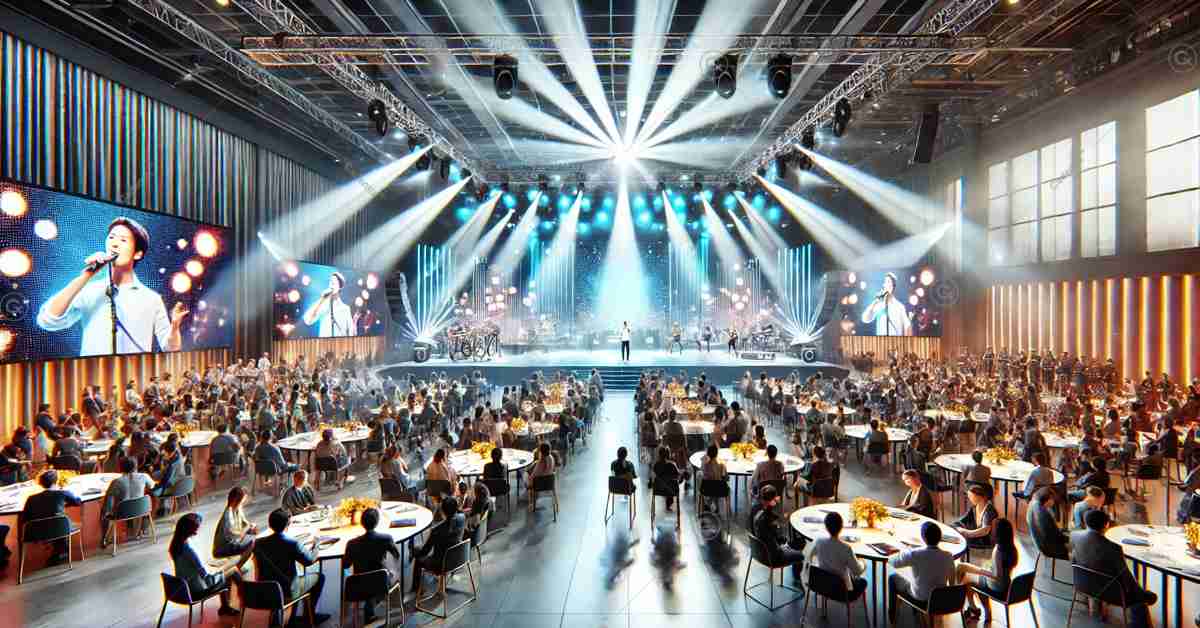
Overcoming Challenges in Creative Event Planning
While creativity is essential in event management, it often comes with its own set of challenges. Balancing innovative ideas with practical constraints like budgets, stakeholder expectations, and logistical hurdles can be daunting. However, with the right strategies, these challenges can be effectively managed, allowing you to bring your creative vision to life.
1. Balancing Creativity with Budget Management
One of the most common challenges in creative event planning is staying within budget while still delivering a unique and memorable experience. Budget management doesn’t have to stifle creativity; instead, it can drive innovation. By prioritizing key elements that will have the most significant impact, and being resourceful with available funds, you can maximize the budget without compromising on creativity. Consider utilizing cost-effective event technology tools that offer high engagement at a lower cost, or negotiating with vendors to find creative solutions that align with your financial constraints.
2. Vendor Negotiation and Collaboration
Effective vendor negotiation is crucial when bringing creative ideas to life. Establishing strong relationships with vendors and collaborators can open the door to flexible pricing, customized solutions, and innovative offerings that enhance your event. Communicate your creative vision clearly and work closely with vendors to explore possibilities that fit within your budget and logistical framework. By treating vendors as partners in the creative process, you can achieve more than what might initially seem possible.
3. Stakeholder Management
Managing stakeholder expectations while pursuing a creative vision can be a delicate balancing act. Stakeholder management involves ensuring that all parties involved—from clients to sponsors to team members—are aligned with the creative direction of the event. Clear and effective communication is key here. Regular updates, visual mockups, and detailed plans can help stakeholders visualize the creative elements and understand how they contribute to the overall success of the event. By engaging stakeholders early in the process and incorporating their feedback, you can gain their support and minimize resistance to bold, creative ideas.
4. Navigating Logistical Challenges
Logistics are the backbone of any successful event, and creative ideas must be grounded in practical execution. Logistics planning requires a keen eye for detail, ensuring that every creative element is feasible within the event’s framework. This might involve rethinking venue layouts, considering alternative materials, or devising new methods for attendee interaction. Creativity in logistics isn’t about taking shortcuts but rather finding innovative ways to overcome obstacles and enhance the event experience without compromising on quality or safety.
By addressing these challenges head-on, you can create a solid foundation that supports and enhances creativity in event planning. Overcoming these hurdles not only allows you to deliver on your creative vision but also ensures that your event is executed seamlessly, leaving a lasting impression on attendees and stakeholders alike.
Case Studies of Successful Creative Events
Understanding how creativity has been successfully implemented in real-world scenarios can provide valuable insights for your own event management endeavors. Examining case studies of innovative events highlights the power of creativity in event planning and offers practical lessons that can be applied across various types of events.
1. Innovative Event Examples
One notable example is the annual South by Southwest (SXSW) festival, which has become a benchmark for creativity in event planning. By blending technology, music, film, and interactive media, SXSW consistently delivers an engaging, multi-sensory experience that keeps attendees coming back year after year. The event’s success lies in its ability to stay ahead of event trends and leverage the latest event technology tools to create immersive and interactive experiences. Whether it’s through virtual reality installations, AI-driven networking tools, or experiential marketing activations, SXSW demonstrates how creativity can elevate an event to iconic status.
Another example is the Google I/O conference, which showcases creativity in hybrid events. By combining in-person experiences with cutting-edge digital content, Google I/O effectively engages both physical and virtual audiences. The use of interactive live streams, virtual demos, and real-time Q&A sessions illustrates how creativity in event planning can overcome the limitations of a traditional format, making the event accessible and engaging for a global audience.
2. Lessons Learned from International Event Management
International event management adds another layer of complexity where creativity plays a crucial role. The World Economic Forum in Davos, Switzerland, is an excellent case of how creative event management can address the unique challenges of an international event. The event organizers creatively manage logistics, security, and communication for high-profile attendees from around the world. By incorporating cutting-edge technologies and innovative logistics solutions, they ensure smooth operations while also providing an environment conducive to high-level discussions and networking.
Additionally, the Cannes Film Festival stands as a prime example of how creativity in event marketing and experiential marketing can elevate an event’s prestige. From the glamorous red carpet to exclusive screenings and networking events, every aspect of Cannes is meticulously planned to create an unforgettable experience. The festival’s ability to blend culture, entertainment, and business has made it one of the most sought-after events globally, illustrating how creativity can enhance both the event’s appeal and its economic impact.
3. Practical Applications for Event Planners
These case studies underscore the importance of integrating creativity into all aspects of event management, from project management and logistics planning to stakeholder management and event marketing. Event planners can take inspiration from these examples to innovate within their own events, regardless of scale or budget. By staying informed about the latest event trends and technologies, and by learning from the successes of others, planners can push the boundaries of what’s possible, delivering events that are not only logistically sound but also creatively outstanding.
These real-world examples demonstrate that with the right combination of creativity and strategic planning, any event can be transformed into a memorable experience that resonates with attendees and sets new standards in the industry. Whether you’re managing a small local gathering or a large international conference, the lessons learned from these creative events can help guide your own event management journey, ensuring that your events are both innovative and successful.
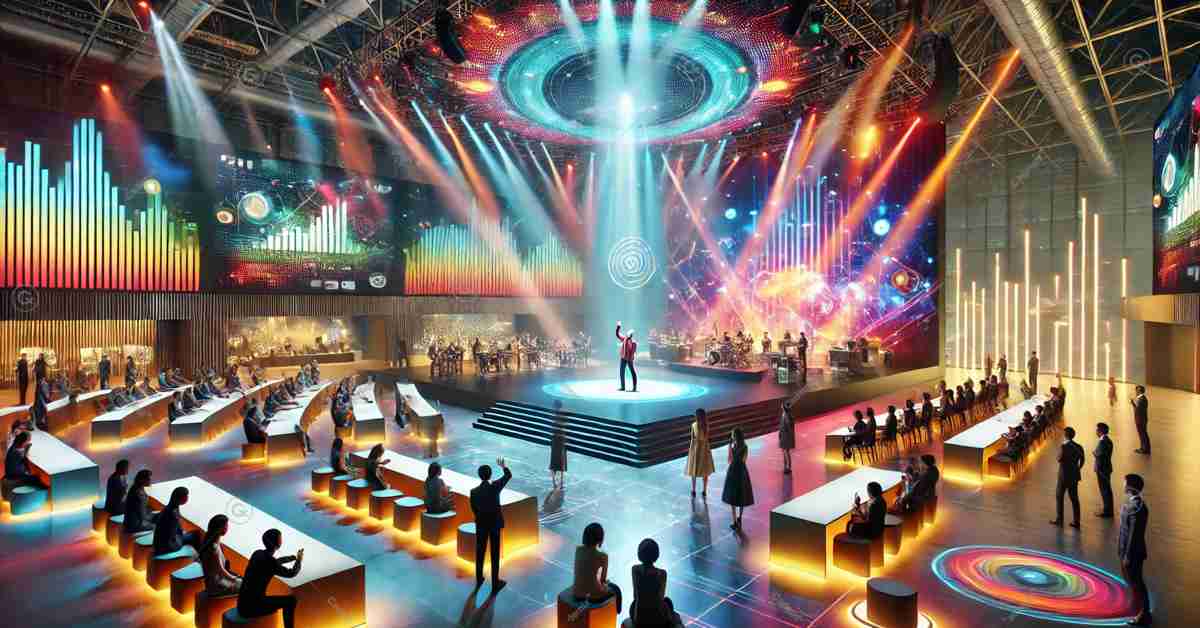
Practical Tips for Event Planners
Successfully integrating creativity into event management requires not only inspiration but also practical strategies that can be applied across various stages of the planning process. Here are some actionable tips for event planners to ensure their events are both innovative and effective.
1. Crafting Creative Event Marketing Strategies
A well-executed event marketing strategy is essential for capturing attention and driving attendance. To stand out, consider incorporating experiential marketing techniques that allow potential attendees to interact with your event before it even begins. This could include engaging teaser campaigns, interactive social media content, or behind-the-scenes videos that offer a glimpse into the event’s creative elements. Utilizing event technology tools like augmented reality (AR) filters or AI-powered chatbots can also enhance your marketing efforts, providing a personalized and immersive experience that excites and engages your audience.
2. Ensuring Effective Communication
Effective communication is the backbone of successful event planning. From coordinating with vendors and stakeholders to briefing your team on the creative vision, clear and consistent communication ensures that everyone is aligned and working towards the same goals. Utilize collaboration platforms and project management tools to keep all parties informed and on track. Additionally, developing detailed event briefs and creative presentations can help communicate complex ideas and ensure that the creative aspects of the event are understood and executed as intended.
3. Balancing Creativity with Logistics
Creative ideas are only as good as their execution, and this is where logistics planning comes into play. When integrating creative elements into your event, it’s crucial to consider how they will be practically implemented. Work closely with your logistics team to ensure that the creative aspects are feasible within the event’s timeframe and budget. This might involve creative problem-solving, such as finding alternative materials or venues that support your creative vision while still adhering to logistical constraints.
4. Post-Event Evaluation for Continuous Improvement
After the event, conducting a thorough post-event evaluation is essential for assessing the success of your creative strategies. Gather feedback from attendees, stakeholders, and your team to understand what worked well and what could be improved. This evaluation should include both quantitative data, such as attendance numbers and engagement metrics, and qualitative feedback, such as attendee satisfaction and brand perception. By analyzing this information, you can refine your approach for future events, ensuring that your creative ideas continue to evolve and resonate with your audience.
5. Leveraging Technology for Innovation
In today’s digital age, staying ahead in event management means embracing the latest event technology tools. From virtual event platforms to AI-driven analytics, technology offers endless possibilities for enhancing creativity in your events. Consider how tools like live polling, interactive event apps, or virtual reality experiences can be used to engage attendees and create a more dynamic event environment. Keeping up with event trends in 2024 and beyond will help you identify new technologies that can elevate your event planning process and deliver innovative experiences.
By applying these practical tips, event planners can not only foster creativity but also ensure that it is effectively integrated into every aspect of their events. Whether it’s through innovative marketing, seamless logistics, or cutting-edge technology, these strategies will help you deliver events that are both creatively inspired and flawlessly executed, setting a new standard in event management.
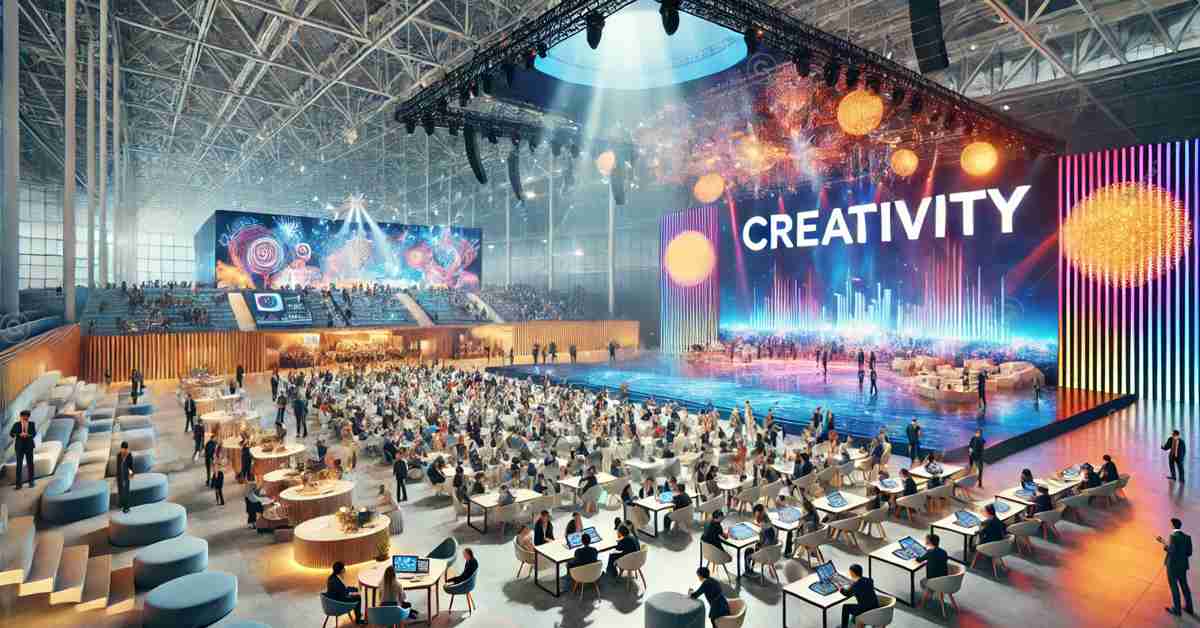
Future of Creativity in Event Planning
As the event industry continues to evolve, the role of creativity in event planning will become increasingly vital. Looking ahead, the future of event planning will be shaped by a combination of emerging technologies, changing audience expectations, and a growing emphasis on sustainability. To stay competitive and relevant, event planners must be prepared to embrace these trends and harness their creative potential.
1. Event Trends 2024 and Beyond
The landscape of event management is always shifting, with new event trends emerging each year. In 2024, we can expect to see a greater focus on personalization, with events becoming more tailored to individual attendee preferences. This trend will require event planners to think creatively about how to gather and utilize data to enhance the attendee experience. Additionally, the rise of hybrid events will continue, blending physical and digital experiences in innovative ways. As technology evolves, so too will the opportunities for creativity in crafting these seamless, multi-platform experiences that engage audiences both in-person and online.
2. Sustainability and Creative Solutions
With increasing awareness of environmental issues, sustainability is becoming a crucial consideration in event management. The challenge lies in finding creative solutions that reduce the environmental impact of events without compromising on the quality of the experience. This could involve everything from selecting eco-friendly venues and materials to designing waste-reduction strategies and incorporating virtual elements to minimize travel. Creative event planners will need to think outside the box to integrate sustainability into their events in meaningful and impactful ways, setting a new standard for responsible event planning.
3. Leadership in Event Planning
As the industry evolves, strong leadership in event planning will be essential for fostering a culture of creativity within teams. Leaders in event management must encourage innovation, support risk-taking, and provide the resources needed to explore new ideas. By promoting a collaborative environment where creativity is valued, event planners can unlock the full potential of their teams, leading to groundbreaking events that push the boundaries of what’s possible. Leadership also involves staying informed about the latest event technology tools and trends, ensuring that your team is equipped to deliver cutting-edge experiences.
4. The Role of Technology in Shaping Creativity
Technology will continue to play a pivotal role in shaping the future of creativity in event planning. With advancements in AI, virtual reality, and data analytics, event planners have more tools than ever to create personalized, immersive, and engaging experiences. The integration of these technologies will not only enhance the creative aspects of events but also allow for more efficient and effective planning processes. Planners who embrace these technologies will be better positioned to deliver innovative events that meet the evolving expectations of attendees.
5. Continuous Innovation and Adaptation
The future of creativity in event planning lies in continuous innovation and the ability to adapt to changing conditions. Whether it’s responding to new audience preferences, integrating the latest technology, or finding creative ways to overcome challenges, the most successful event planners will be those who are constantly evolving. By staying ahead of industry trends, fostering a culture of innovation, and embracing new tools and techniques, you can ensure that your events remain at the forefront of the industry, delivering experiences that are not only memorable but also groundbreaking.
In conclusion, the future of creativity in event planning is bright, with endless possibilities for those willing to think outside the box. As you look to the future, remember that creativity is not just a tool for differentiation but a driving force behind the success of your events. By embracing innovation, sustainability, and technology, you can create events that not only meet the expectations of today’s audiences but also set new standards for the industry in the years to come.
Conclusion
In the ever-evolving world of event management, creativity is not just an option—it’s a necessity. As we have explored throughout this article, the role of creativity in event planning is pivotal in crafting experiences that resonate with attendees, stand out in a crowded marketplace, and set new industry standards. From innovative event marketing strategies to the integration of cutting-edge event technology tools and the embrace of sustainability, creativity is the driving force that can transform any event into a memorable and impactful occasion.
By staying ahead of event trends in 2024, leveraging the latest technological advancements, and applying creative solutions to logistical and budgetary challenges, event planners can deliver extraordinary events that exceed expectations. Moreover, strong leadership and a commitment to continuous innovation will ensure that your events remain at the forefront of the industry, paving the way for future success.
As you move forward in your event management journey, remember that the power of creativity lies in its ability to inspire, engage, and transform. Whether you’re planning a small corporate gathering or a large international conference, think outside the box and let your creativity lead the way. By doing so, you’ll not only meet the demands of today’s audiences but also set a new benchmark for what’s possible in the dynamic and exciting world of event planning.

About the Author
Samareh Ghaem Maghami is a seasoned event planner and creative professional with a rich background in interior decoration and event management. Currently pursuing a master’s degree at Wiener Neustadt, Samareh is also a proud member of the Cademix Institute of Technology, where she continues to expand her expertise in event planning and management. With a passion for innovation and a commitment to excellence, Samareh brings a unique blend of artistic vision and practical experience to every project she undertakes. For more insights into the evolving world of event management, be sure to read her latest article on “The Impact of Technology on Event Planning,” published in the Cademix Magazine.
For inquiries, collaborations, or further discussions on event planning, feel free to contact Samareh directly and explore her other articles for more valuable perspectives.
E-mail: sam.gh.maghami@gmail.com
E-mail: samareh.ghaem-maghami@cademix.org
LinkedIn: https://www.linkedin.com/in/samareh-ghaem-maghami
Xing: https://www.xing.com/profile/Samareh_GhaemMaghami









